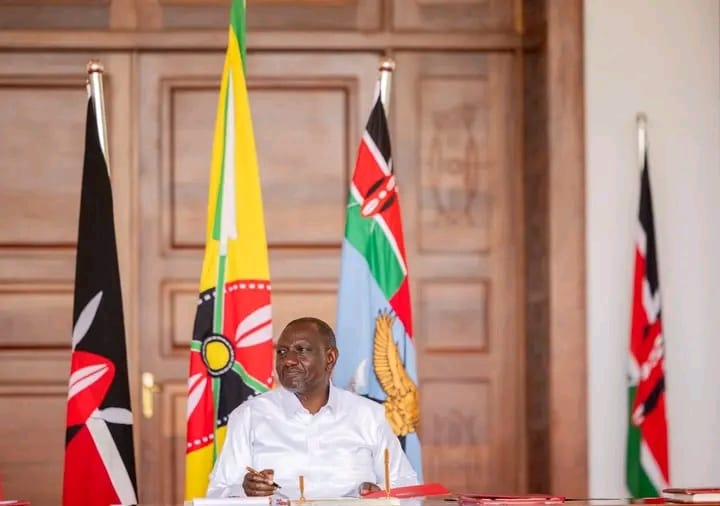
President Ruto Signed Eight Landmark Bills, Including Cybersecurity Law.
President William Ruto has signed into law eight significant bills, among them the highly anticipated Computer Misuse and Cybercrimes (Amendment) Bill, 2024, marking a new phase in Kenya’s digital governance and regulatory reforms. The signing ceremony, held at State House, Nairobi, comes amid the government’s push to modernize legislation across key sectors, ranging from technology and finance to land administration and policing.
The newly assented Computer Misuse and Cybercrimes (Amendment) Act seeks to strengthen Kenya’s resilience against online threats by updating existing provisions to cover emerging digital crimes. The law expands the definitions of cyber offences such as phishing, SIM-swap fraud, impersonation, and data harvesting. It introduces stricter penalties for offenders and grants authorities broader powers to act against online platforms or individuals spreading illegal content. Notably, the law empowers courts and authorized agencies to block or order the removal of websites and digital content deemed harmful or unlawful even before damage occurs.
While the government defends the new cyber law as necessary for protecting national security, financial systems, and citizens’ data, critics have expressed concerns over potential misuse. Civil society groups, journalists, and digital rights advocates argue that the vague wording of certain clauses—such as those relating to “false publications” and “offensive content”—could be exploited to suppress free speech and legitimate dissent. Legal experts have also warned that the law may face constitutional challenges for infringing on freedoms guaranteed under Kenya’s 2010 Constitution.
Alongside the cyber law, President Ruto also signed into effect the Virtual Asset Service Providers (VASP) Act, 2025, which introduces a formal regulatory framework for cryptocurrency and digital asset trading in Kenya. The Act mandates all crypto service providers to register with the Central Bank of Kenya and comply with anti-money laundering and consumer protection standards. Analysts say this move will help position Kenya as a regional fintech hub while curbing the risks of unregulated digital currency operations.
Other bills signed include the Land (Amendment) Bill, 2024, the National Land Commission (Amendment) Bill, 2023, the Wildlife (Amendment) Bill, 2023, the National Police Service Commission (Amendment) Bill, 2024, the Air Passenger Service Charge (Amendment) Bill, 2025, and the Privatisation Bill, 2025. Collectively, these laws are expected to streamline governance structures, promote transparency, and align Kenya’s policy framework with modern economic realities.
President Ruto described the legislative package as part of his administration’s commitment to strengthen national institutions, protect citizens’ rights, and foster a secure digital and investment environment. “These laws reflect our nation’s determination to embrace progress while protecting the integrity of our systems,” he said.
However, the timing and manner of the bills’ enactment have sparked debate among observers, with some critics accusing the government of fast-tracking controversial laws without adequate public consultation. Rights groups have urged Parliament to ensure strong oversight and judicial safeguards to prevent abuse of the new provisions, especially those related to cybersecurity and digital freedom.
The coming months will be crucial as regulatory agencies begin implementing these laws. Attention will focus on how the new cybersecurity framework is enforced, whether it bolsters national security without undermining civil liberties, and how the crypto regulatory regime shapes Kenya’s growing digital economy.

